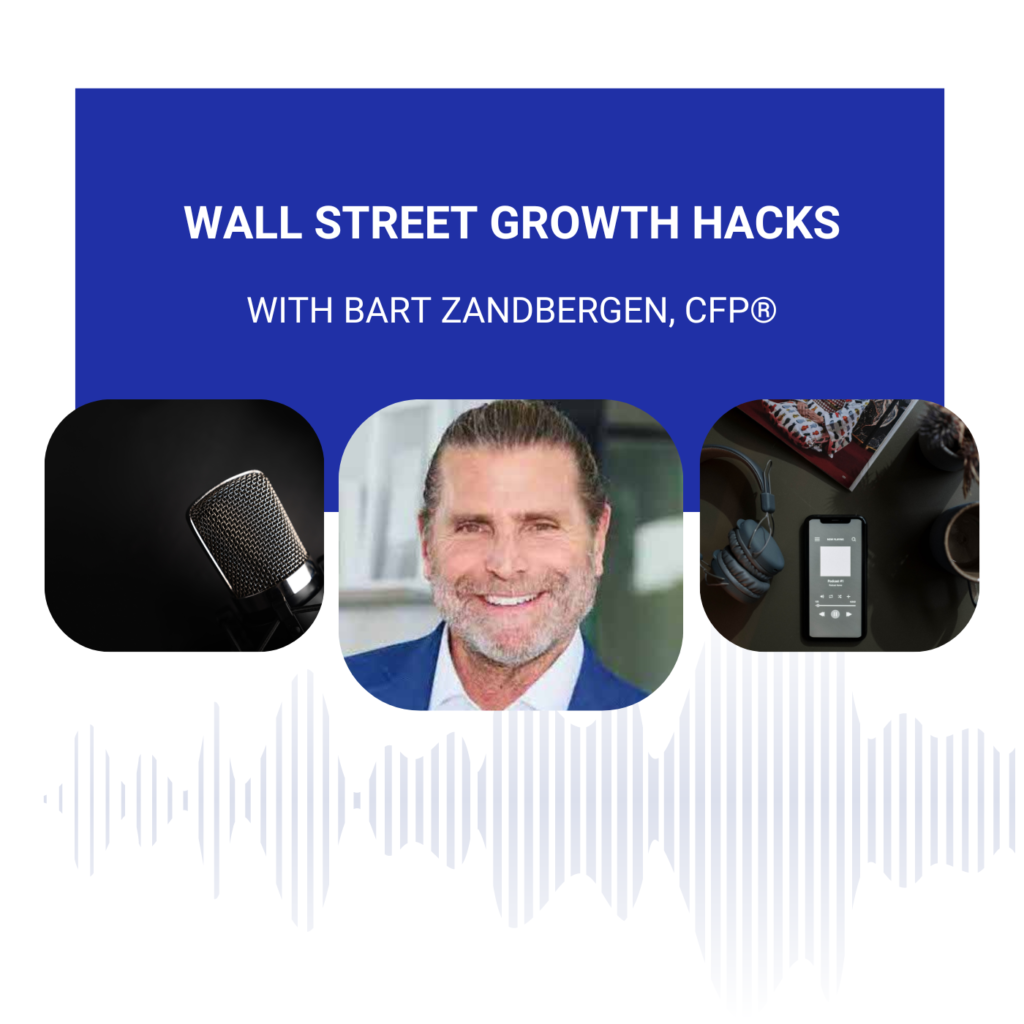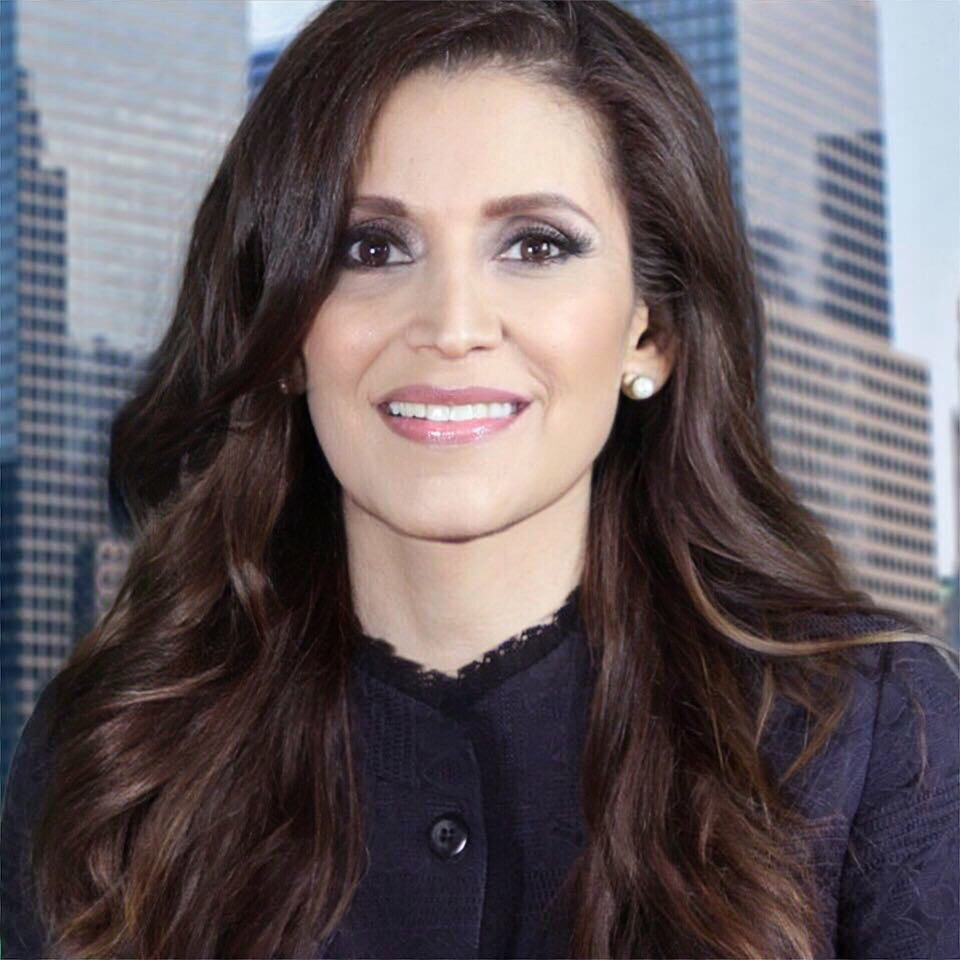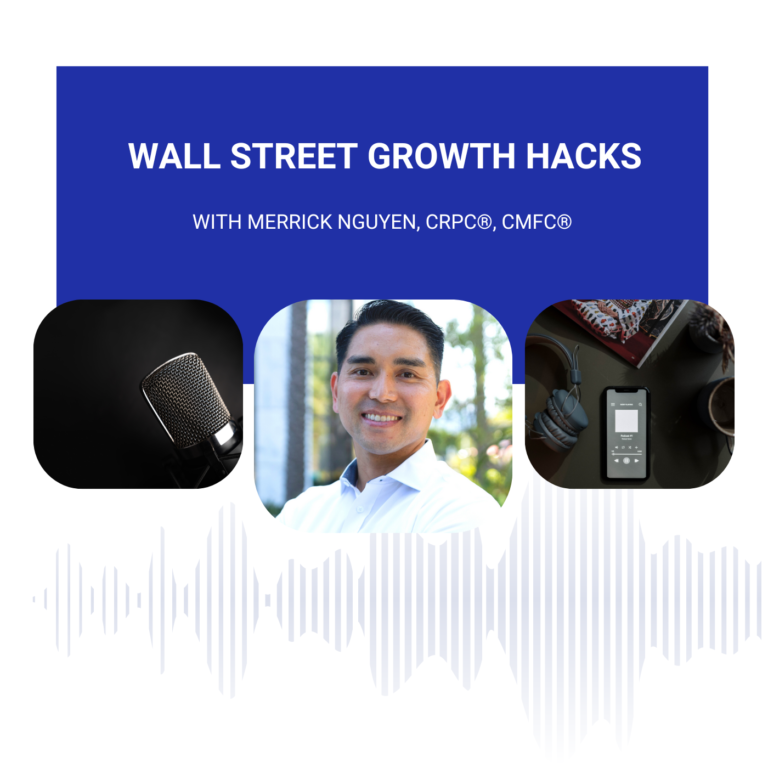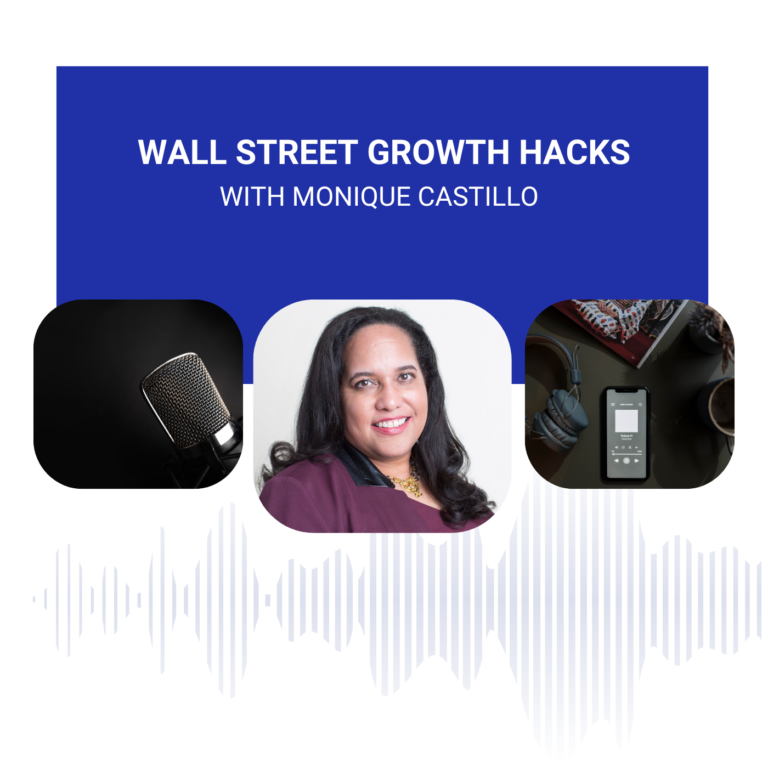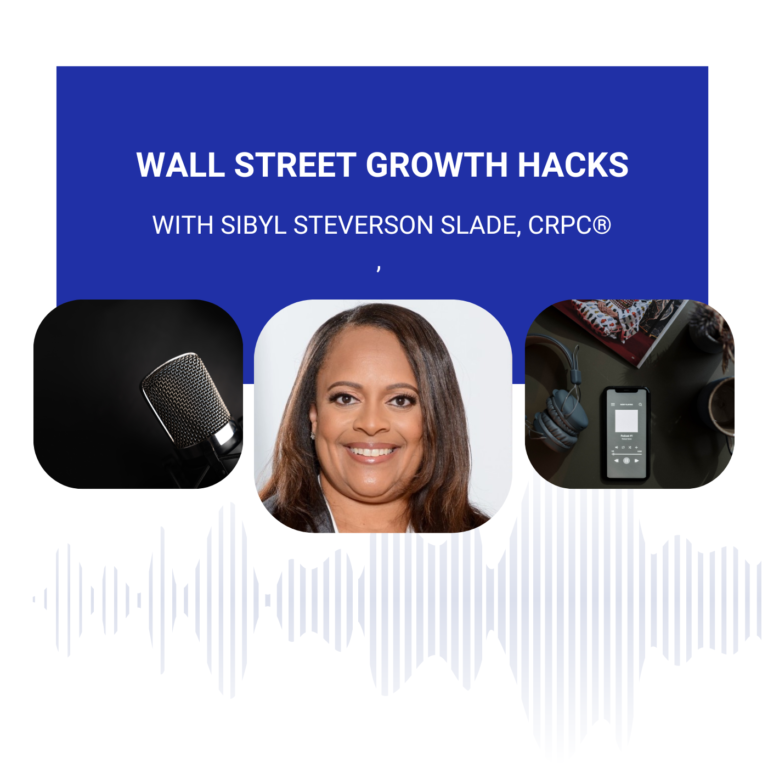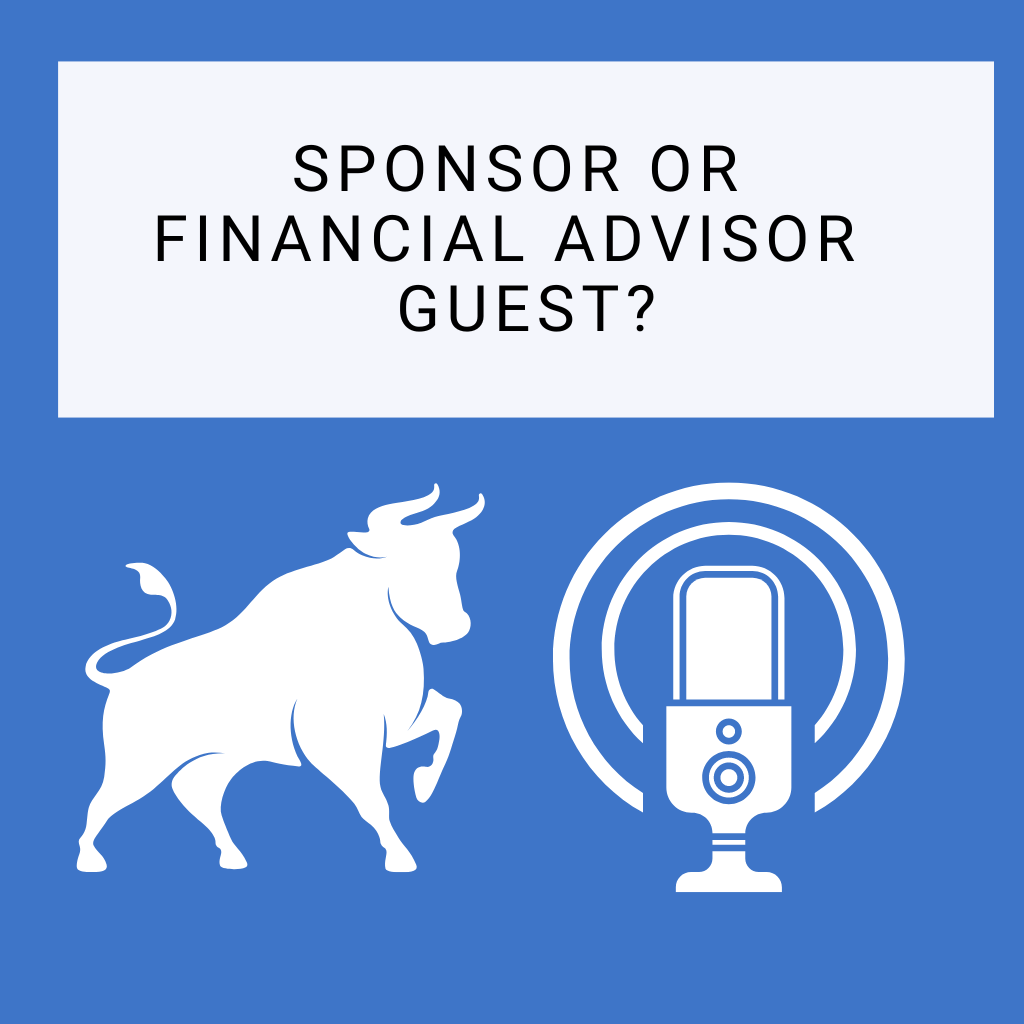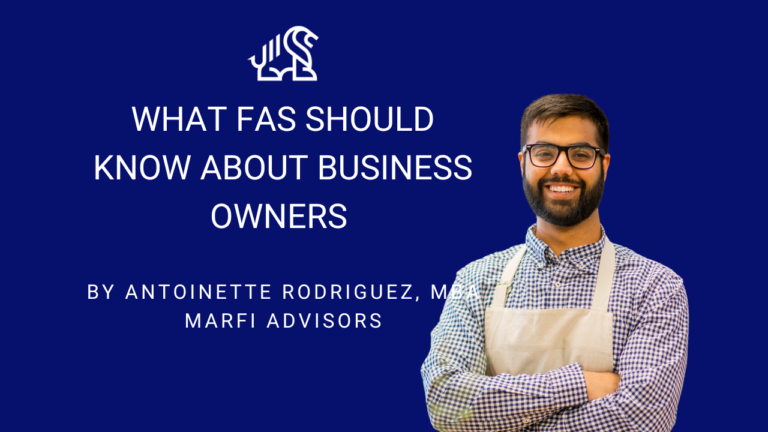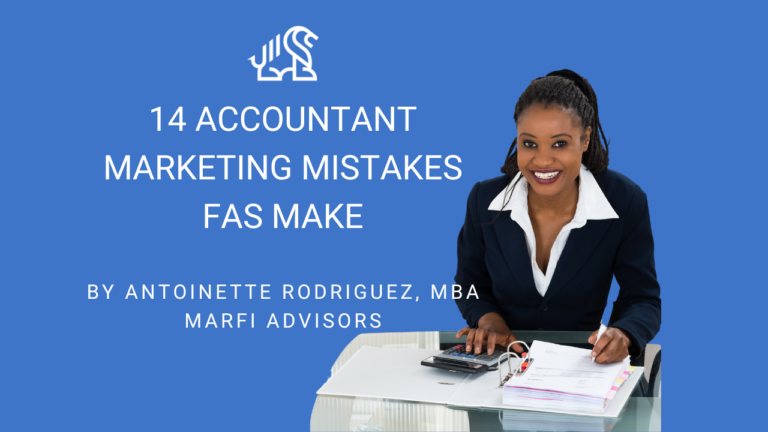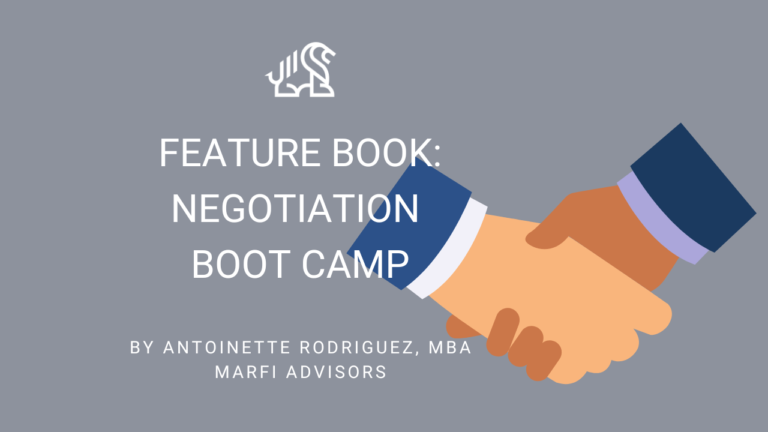WATCH VIDEO PODCAST
LISTEN AUDIO PODCAST
ABOUT BART ZANDBERGEN, CFP
With almost three decades of dedication and service, Bart Zandbergen is the founder and CEO of The Zandbergen Group. He is a fitness enthusiast who enjoys surfing and is a certified sommelier.
Bart is the founder of Kindness Kures – an organization that brings visibility and funding to anti-bullying nonprofits. He was named to Forbes Best-In-State Wealth Advisors’ list for 2020, America’s Best Financial Planners, and a Five Star Wealth Manager, five years in a row, by Orange Coast Magazine.
CONTACT INFORMATION
Zandbergen Group (Company Site)
AI-GENERATED TRANSCRIPT
[00:00:00] Antoinette Rodriguez: Welcome to Wall Street Growth Hacks. I’m Antoinette Rodriguez, CEO of MarFi Advisors, a marketing, and strategy coaching firm for million-dollar wealth managers. Our guest today is Bart Zandbergen. Bart and I go way back (to) when I contemplated moving to Newport Beach. We were introduced by our dear friend, who I call L-Squared – just like I go by ARod.
[00:00:27] Antoinette Rodriguez: Let’s begin with shining a well-deserved light on our wonderful guest’s background. With almost three decades of dedication and service, Bart is the founder and CEO of The Zandbergen Group. Bart is a fitness enthusiast who enjoys surfing and is a certified sommelier.
[00:00:49] Antoinette Rodriguez: He is the founder of Kindness Kures – an organization that brings visibility and funding to anti-bullying nonprofits. He was named to Forbes [00:01:00] Best-In-State Wealth Advisors’ list for 2020, America’s Best Financial Planners, and a Five Star Wealth Manager, five years in a row, by Orange Coast Magazine. Welcome to our show, my friend.
[00:01:16] Bart Zandbergen: ARod, thank you for having me.
[00:01:18] Antoinette Rodriguez: Bart, where are you? I already alluded to Newport Beach. Are you there today?
[00:01:23] Bart Zandbergen: My office is in Laguna Beach, which is one city south of Newport Beach.
[00:01:28] Antoinette Rodriguez: Laguna Beach – basically living the dream. Making those of us on this coast really jealous!
[00:01:36] Bart Zandbergen: I will say it’s not too bad to live and work in Laguna Beach.
[00:01:39] Antoinette Rodriguez: Definitely. Definitely. As I said, I contemplated it. It’s a long story (as to) why that didn’t happen. Nevertheless, one of the good things that came out of it was meeting you. Thank you again for joining our show.
[00:01:49] Bart Zandbergen: Oh, it’s my pleasure.
[00:01:51] Antoinette Rodriguez: Childhood is said to influence much of what we become, and I know we’ve touched on this in the past. How did [00:02:00] child Bart become powerhouse adult Bart?
[00:02:04] Bart Zandbergen: That’s a good question. I grew up lower middle class. My dad was a truck driver. My mom stayed at home. They’re both of European descent and immigrated here. English was their second language. I didn’t know much different other than we were on the if you would say, “the other side of the tracks.” My mom would often suggest that “those friends of yours have this because they’re on that side of the tracks.”
[00:02:35] Bart Zandbergen: I never felt bad about that, but it did resonate with me that I would like to have things that the people on the other side of the street had. Time went by, and I didn’t look at that as a deterrent. Probably more as a motivator.
[00:02:55] Bart Zandbergen: And then as time went on, I had college, I was [00:03:00] college bound. I thought that computer programming was going to be my career. I finished college with a bachelor’s degree in business with a concentration in what was then management information systems. Which was business programming.
Antoinette Rodriguez: MIS (Management Information Systems)?
[00:03:19] Bart Zandbergen: MIS. Exactly. We’re close to the same age. Do you know what that is? Program for a year. I wasn’t really happy. I thought it was just the job. I don’t like this company. I went to another company. I lasted two years but finally realized this was just not a career for me. And then I got excited about the sales of computer systems.
[00:03:40] Bart Zandbergen: Using what I knew of computers, and then my more, little more outgoing personality – combining those. And IBM I had my target set on IBM, and I thought that was the place. Now, unfortunately for me, I didn’t have the proper training or any connections, so that didn’t work out. [0:04:0], But I didn’t give up.
[00:04:01] I found a position that was in sales support. That was referred to as a systems engineer. It was more of the techy component of sales. And I had specifically and strategically taken that position so that I could leap into a sales position eventually. And that worked. Within a year,
[00:04:23] I was marketable in sales. I did find a position where I was selling computer systems. Ultimately, I became successful enough at that young age -selling computer systems – that I needed a financial advisor for myself. That started this whole thing. I’ll just put a bow on the story.
[00:04:45] A couple of years into that, as I was approaching my 30th birthday, I woke up one day and realized that. Financially I’m doing great but I’m just not fulfilled. It’s one of those moments. [00:05:00] I had a close relationship with my financial advisor at the time.
[00:05:03] whose a friend of mine from the gym. I happened to mention it to him. He’s a good advisor. He knew how to ask the right questions. And he just said, one time, why don’t you consider a career in financial services? As a financial advisor?
[00:05:21] Like most big decisions I took that information, thought about it, and digested it. About six months into it, I remember waking up at about two o’clock in the morning, sitting straight up, and realizing this is it. I’m going to do this. It’s a long process on the transition, but that was my childhood to a financial advisor.
[00:05:42] Antoinette Rodriguez: That was your epiphany moment. Most importantly, that all of the experiences prior to that led you there, right? Yes. For sure. The fork in the road and you decide to go one way or the other. Thank you.
Steven Covey says you should [00:06:00] begin with the end in mind; since financial Advisors are tasked with the weight of important client life goals, consistent self-care cannot be overstated.
[00:06:10] Antoinette Rodriguez: I know you’re a diligent health and wellness enthusiast, and I’ve seen some of your posts about the prep preparation of the food. In fact, you’ve motivated me. forForateverForworth, you’ve helped this New York girl get ready in the morning. Much to the chagrin of my teenager. Can you take us through your routine and tell us how it has helped you become a better financial?
[00:06:31] Bart Zandbergen: Yeah, sure. I don’t know where or how this happened, but I’m a very disciplined person, and maybe it was my dad who was a very even truck driver; he was very, had a strong work ethic. I think maybe that. Transferred to me, but not just with work with all areas of my life, the fitness component.
[00:06:54] As you mentioned earlier, I founded an anti-bullying foundation as a young [00:07:00]child; I was bullied because I was overweight and introverted. There was a point, which is a story within itself. I realized and acted upon something to change my life. And then that stuck. And like with most things, if I’m into it, I’m into it.
[00:07:18] I’m now 42 years into health and fitness. Other than two separate shoulder surgeries. I’ve never missed more than two or three in a row in the gym. How that helps me as an advisor is I’m alert. I’m attuned. I’m healthy. And I’m able to take on the tasks of the day.
[00:07:39] Some cases, long days, the stress of the market, whatever that might be. But it’s a very important aspect of my life. And we might get to it a little bit later, but my concept of true wealth it’s a big pillar in that lineup.
Antoinette Rodriguez: I believe Tony Robbins says that you are praised in public for what you [00:08:00] work on in private.
[00:08:01] Everyone who would see you today would think introvert and overweight? Those are two of the farthest adjectives about you today. So that’s an interesting progression. We were talking earlier about how success is rarely linear. And how, when you plan, God laughs. Take us through the journey of your practice. How did you get here, and who do you work with?
[00:08:29] Bart Zandbergen: I love that statement about God laughing at your plans. And even as a planner, I certainly had goals as an advisor. But I didn’t really have specific plans that by X date, I’m going to hire new advisors. That wasn’t part of it. A lot of it was just stick-to-itiveness.
[00:08:50] Is that the word stick-to-itiveness? Just (keep) going and persistency. I guess we could say this. It was over 30 years ago. I left a job back then. [00:09:00] (where I earned) over ahundred thousand dollars a year. I left that job, salary, and benefits. To become an FA. Do you remember what your salary was when you started as an FA? It’s zero.
[00:09:09] Antoinette Rodriguez: Yes, $0!
Bart Zandbergen: So I struggled. I struggled the first couple of years. I had a wife, a house, and two kids. I did the FA (job) during the day. It’s a little embarrassing, but I worked as a bouncer at night. I did some other side jobs – modeling stuff. I did whatever it took to do what I needed to do.
[00:09:34] Bart Zandbergen: The plan then was just to survive. And I did. The advisors that I was working with – or at least the one advisor – was a great mentor. In those days, and I know some guys are still doing it today. I don’t. But seminars were a big deal. And I was very low level. Make the calls. Follow up after the seminar. That sort of thing.
[00:09:58] I have [00:10:00] clients today – from 30 years ago – from those seminars. That was really the early days. It was five years and I felt okay- I’m surviving; I crossed that milestone. By the 10th year, I realized, this is it. I’m going to be okay. Now I did just pass my 30th year.
[00:10:24] And there was a big turning point. Again, I think this applies to stick-to-it-iveness and a bit of intuition.
I have worked with people in the past – where they say (and this is going to answer your question). You have to set a minimum. You can’t work with the “quote-unquote” small (accounts)
I worked with a group of five partners. There were just starting their business. We had become friends. Back in the day, I was a Jack of all trades. I was doing their employee benefits. I was doing a bit of their insurance. And they were doing a little bit of monthly investing.
[00:10:57] A seasoned advisor probably wouldn’t have [00:11:00] touched them with a 10-foot pole. I was building my book. MY AUM was getting to a reasonable level. Six years ago, those five partners sold their business for $260 million. I got a big part of their after-tax and after buying their houses. And so forth.
[00:11:17] I got a big part of that. I doubled my AUM that year. And so you go, what’s your plan? I didn’t plan that. My plan was just to work hard, service my clients the best I can. Hopefully, they see the value and give referrals. That has always been my plan. More that than being very specific on things.
[00:11:41] Antoinette Rodriguez: I imagine now with the greatest wealth transfer ever in the history of the world, some clients or some prospects, who might not be considered an ideal client, can be the person that inherits X number of dollars or moves into a certain job.
Bart Zandbergen: I had a [00:12:00] small stint at a previous firm, which is a whole long story within itself. They were the ones that really put pressure on me to drop these clients.
[00:12:08] They don’t fit our formula. I’ve had probably half a dozen of $100- $200,000 clients that either inherited , sold a business they had stock in. That $200k became $2 to $5 million. Each of those six people in the last five years get, I think people get into this business for different reasons, and, one let’s face it.
[00:12:31] We all like to make money. We want to be financially sound, but I really like helping people. And I like servicing people and, I have clients that, hey, that are, would be considered. Quote unquote small, but, and some have said to me: “Bart, We can tell. We’ve seen your new office. I don’t know if we belong with you.”
[00:12:51] I said, you absolutely belong with me. That’s a commitment I made to you, and I’ll keep that for as long as I’m working. Excellent. That’s a philosophy [00:13:00], and, of course, the context is that 30 years ago, depending on when you started in this business to a degree, the real, the only way to market was cold calling and casting a wide net.
[00:13:13] Antoinette Rodriguez: And the marketing methods have changed, has the typical client that someone might pick up if they’re a newer financial advisor change? That thing that you mentioned about the ten-year mark. It’s very interesting.
[00:13:35] Antoinette Rodriguez: I remember when I started at Merrill, and I interviewed with the manager there. The big discussion back then was if you do X, then you can become a million-dollar producer. And to a degree, of course, they’re trying to sell you on joining the firm at that time.
The question is, how do you get to that point? And how [00:14:00] long might it take you depending on your Rolodex? If I just said Rolodex, I think I really dated you. Just say your database.
[00:14:10] Bart Zandbergen: I’ve had a number of people, younger advisors, come to me for just advice or suggestions. The simplest one I give is to just stay in the game. Just stick to it. Service your clients. Stick to it. I didn’t make this up, but ten years does; I know it seems like a long time for someone who’s just one or two years in practice.
[00:14:37] But it is a mark, right? It is a line, and I’ve, I have one of my very good buddies. I think he’s nine years. He’s at Northwest Mutual. I’ve been talking to him for years. He said, you’re right. I feel I’m a year away from being over that hump. Or I know this is it. I like Malcolm Gladwell that has 10,000 steps.
[00:14:59] Antoinette Rodriguez: [00:15:00] That 10 number. I delightfully see many of your social media posts featuring your very beautiful family. You refer to them as true wealth. Would you let our audience know how they have helped you become a better financial advisor?
Bart Zandbergen: Sure. It’s probably been 15 years. Halfway into my career where I realized, okay, money obviously is important.
[00:15:27] We talked about that already throughout this. It is that wealth, or true wealth is more than money. I think health is.I know this is a coined phrase, but health is the ultimate wealth because you probably know this as well as Advisors listening. We have clients that work their entire lives to save as much money as they can.
[00:15:50] And at the expense of their health. Only at that time to rapidly use whatever wealth they’ve accumulated to try to regain their health, and that, [00:16:00] that doesn’t always happen. You can’t always do that. I’m a big believer, and that is a pillar of true wealth. I think some sort of faith, whatever that is, it doesn’t matter. Having faith is important. Service to others is a pillar. Legacy. Family and friends, I think are important.
[00:16:22] Without that, why are you working? What do we do this for? And I think the thing that I consciously- I’ll use the word struggle. I consciously am aware of balance in life – because work and my clients are very important to me. But I have a fragmented. Probably not the right definition. But I have my young daughter and then I have my older kids and grandkid. And trying to balance time with everyone is important – but it’s very challenging.
[00:16:49] Antoinette Rodriguez: You mentioned grandkids, and I know people [00:17:00] will do a double take on that. But yes, there are beautiful photos. Thank you much for sharing your beautiful family with us. And motivating us. It’s really inspiring because I’m sure people look at you as a role model for many reasons.
[00:17:15] Antoinette Rodriguez: And that role model area – I aspire to with my daughter. You mentioned that health is wealth. Many people know this (about me) already. I’m a 9/11- breast cancer survivor. Hopefully you never get a message like that or you’ll truly understand that health is everything.
[00:17:38] Antoinette Rodriguez: In fact, it’s the only thing. The very first thing you think of, as they say, proverbially. You are not thinking of the office at that time. The only thing you’re thinking of is, in my case, my daughter. In fact, it was the only thing that I asked for. I said to the doctors in the room, can you give me five years?
[00:17:58] Antoinette Rodriguez: What do I need to do[00:18:00] to make it for five years? My daughter was 13. I wanted to get her to high school. To senior year, at least. And luckily, knock on wood, she’s now17 and doing some college tours right now.
Health is wealth and, oh my goodness. Yeah. That’s for sure.
How has the pandemic affected who you are and how you approach work and life?
[00:18:34] Bart Zandbergen: I think the pandemic was a separator for some. I don’t say anything with judgment. It’s just true. I think some (advisors) kind of hid in a hole. And didn’t know what to do or how. It’s just what they did. And then I think some made lemonade out of lemons.
[00:18:55] And what are the opportunities? What can you do? [00:19:00] I chose to lift from my previous firm, build out a new office and start an office with my own brand during the pandemic.
Antoinette Rodriguez: Yes, I was watching that. I thought “you’re really brave.”
Bart Zandbergen: I took on a long lease. Not even knowing when, or if we’re going to be (back). I instinctively figured we’re going to go back to an office someday.
[00:19:24] Bart Zandbergen: But still, I took on a long lease on Pacific Highway in Laguna Beach. It’s not cheap. I built out the office on my own dime. I looked at it like, Hey, we’re all working from home now. Anyway, that’s expected, and we have that rhythm going. What does it matter if we build out an office?
[00:19:45] We’re not holding up business because we’re working at home anyway and. It was pretty seamless. It was pretty seamless. And we just were always there. We were available for clients. They knew that we were there, and in [00:20:00] some cases, I prefer to have my people here in the office.
[00:20:04] That’s my preference. But I will say for those that work from home on time; they’re (also) very productive. As a matter of fact, I think maybe even more because they get up, they don’t have to get dressed. They’re working from their jammies. I think they may be working longer. We just took that as an opportunity to grow and make sure clients knew that we were here. And, guess what? We also got new clients!
[00:20:27] Antoinette Rodriguez: along those lines, how has client acquisition and retention worked for you during and after the pandemic? Has anything changed about the way you market? For example?
[00:20:53] Bart Zandbergen: Yeah, my marketing is – I don’t. I can say that I do work on branding, which is a form of marketing. But no, I don’t do seminars.
I don’t do outgoing. I don’t do anything like that. I just want to make sure I have a solid brand. And I know [00:21:00] that social media is considered marketing so I put a lot of effort there. And this is also what you talk about. I say this just because I’m an overnight success. After 25 years. There have been attorneys and CPAs that I have worked with and given referrals to for 20 years and nothing (no referrals).
[00:21:21] And in the last five since I opened my office, all of a sudden, the floodgates opened. It’s (now) coming in and coming in. There’s my overnight success after 25 years.
I think it goes back to discipline and persistence. And stick-to-itiveness. I’m a believer – and this is somewhat biblical – but give first. I give to my referral sources, my centers of influence, and not just for the sake of giving. These are solid people who I knew were going to do a good job for my clients. We have a good relationship, but it took a long time to get reciprocation and understanding of the [00:22:00].
[00:22:01] Circles of influence focus is on protecting themselves – to a degree. And their reputation. Yeah. That’s why all those years are important. The integrity, the consistency, the keeping, your word, the over-delivering. Those are all things. If you do that for the clients they refer to, that reflects well on themselves.
[00:22:22] Antoinette Rodriguez: I was just talking to someone who’s a referral expert. She was talking about the real reason someone refers someone to you. It is not for you. It’s for them. To make them look good in some way. They’re referring to you as a reliable resource. As a trustworthy resource.
[00:22:44] Antoinette Rodriguez: And of course, unless you exemplify all of the qualities that elevate them, they’re probably not going to refer you. Or it’s going to take a really, long time. Even, in the best case scenario it might take a long time simply because of the [00:23:00] personality profiles of some of the referral sources.
[00:23:04] Antoinette Rodriguez: They’re not necessarily in sales roles. It’s (referrals) not something that they would necessarily think about. Attorneys and accountants, et cetera. So there’s that. But congratulations on getting those after you over your “overnight success.” with the circles of influence. To that point, who are good business partners or a circle of influence for you? And who have you gelled best with? Are there any surprise partners who had not earlier accounted for surprise referrals?
[00:23:36] Bart Zandbergen I don’t know if I would call it a surprise, but, traditional CPAs. If you can get a referral from them. They’re the hardest for the reason that you said. They’re just not of that mindset and very protective of their reputation. Estate planning attorneys – they’re working with people with wealth. There’s planning, usually asset management, and sometimes insurance involved. [00:24:00] If there was a surprise, it’s this. I got a special certification to specialize in an area – it’s family law attorneys. Divorce attorneys that are called family law.
[00:24:18] And there’s a joke here in my office. This part isn’t the joke. I went through a divorce 20 years ago. I have firsthand experience. And that’s what I think you learn more from than any school of hard knocks. Than you 9can learn) from any certification. I became somewhat of a go-to because of my own personal experience. I decided to get certified.
[00:24:41] The joke here in the office. How I’ve had clients divorce. I continue to work with both spouses. Sometimes I get referrals from either side. I worked just recently with someone who has been divorced for 10 or 15 years. Her ex-husband is now calling me. It’s a very [00:25:00] strange situation where I’m managing both sides of a divorce.
[00:25:06] Antoinette Rodriguez: That’s a Testament to you (like a) therapist. Maybe (keep them?) together. Both sides would like you. That’s where referrals come from.
Why do you feel that clients refer business?
[00:25:41] Bart Zandbergen: It’s now probably evenly split between existing clients and centers of influence. This isn’t referral per se, but we’ve talked about marketing and social media.
I’m now getting calls from high school people. They remember me. Have seen me have trust in me. That’s a weird dilemma all by itself. Very strange that someone from 40 years ago would still remember and trust you. It makes me feel good, but I think it’s still a [00:26:00] kind of strange situation.
[00:26:06] What was the second half of that question?
Antoinette Rodriguez: Why do you feel clients refer?
Bart Zandbergen: Oh yeah. About ten years ago, we did a marketing survey. I’d hired someone to help with this. This was excruciating because she said I need five of your clients. And we’re going to interview them about you.
[00:26:26] I started a little bit of hyperventilating. I don’t know why. These are great long-term clients, but you don’t want to hear anything you don’t want to hear. What (warmed) why my heart was (the words) he’s trustworthy. He listens and he understands. Those were the three key things that
[00:26:48] I was happy about. That’s what comes across. Cause that’s what I feel I try to do.
Antoinette Rodriguez: It’s interesting how none of that, and none of those qualities are in [00:27:00]any credential or service.
Those are adjectives. What drives people. Because when they refer business to you, they’re putting their reputation on the line.
[00:27:11] Antoinette Rodriguez: And those are the types of adjectives that they need to at least feel. If not directly say, to be comfortable sending people to you.
Bart, that went really fast. It always does, doesn’t it? Please would you tell our audience how they can learn more about your practice?
[00:27:30] Bart Zandbergen Oh, thank you. My website is www.zandbergengroup.com. That’s Z like zebra, A N D B E R G E N group.com.
If you want to learn more about me personally, I have my own site, www.bartzandbergen.com . It goes more into my passions, in addition to financial advising, which is wine and fitness, and fashion.[00:27:54] Then all of the primary social [00:28:00] media sites: Instagram, Facebook, and LinkedIn,
Antoinette Rodriguez: Thanks to all of you, our audience for staying till the end of the show, and our charismatic guest, Bart Zandbergen; please do Brooklyn girl a favor and subscribe to our Wall Street Growth Hacks podcast. If you’re interested in sponsoring podcast episodes or submitting an educational article that will help financial Advisors grow their practices, click on the link beneath this post or the show notes.
#BartZandbergen #TheZandbergenGroup #FinancialAdvisor #FinancialPlanning #KindnessKures

